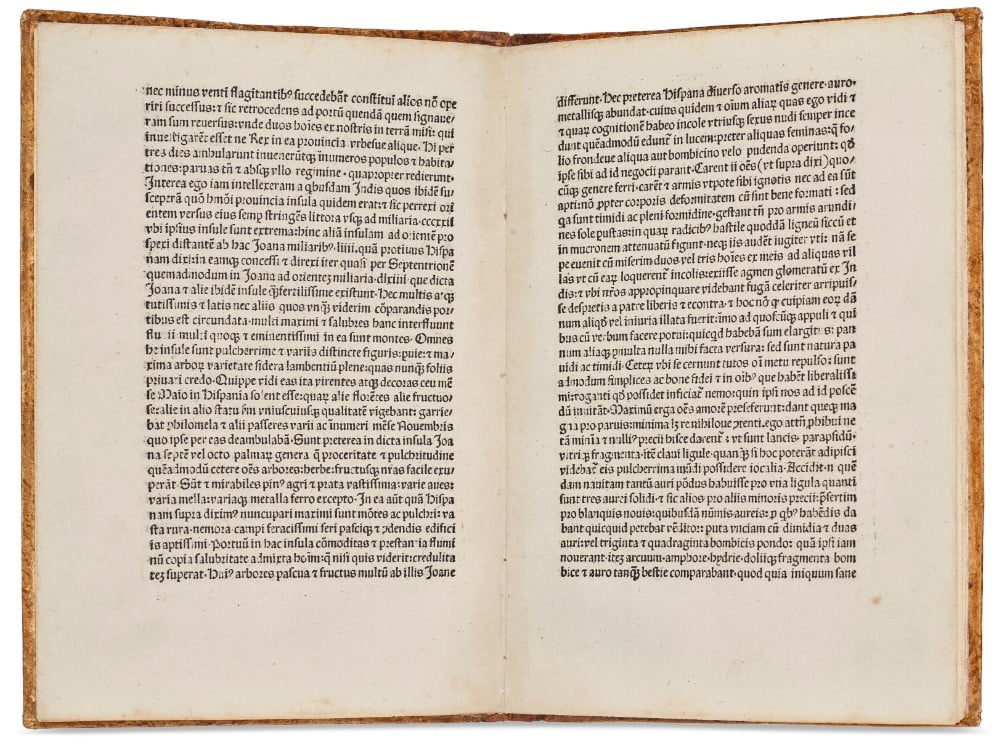Auctions
An Early Edition of an ‘Unhinged’ Christopher Columbus Letter Outlining What He Discovered in America Could Fetch $1.5 Million at Auction
The account sent to King Ferdinand is full of fantasies and inaccuracies.

The account sent to King Ferdinand is full of fantasies and inaccuracies.

Adam Schrader

The earliest known edition of a letter from Christopher Columbus announcing his purported discovery of America is expected to fetch $1.5 million at a Christie’s auction.
The letter was sent to King Ferdinand and Queen Isabella in 1493 and translated into Latin for mass consumption in the early days of the printing press. The Latin translation was addressed to Gabriel Sanchez, a treasurer of the monarchs.
“This document set off one of the first-ever media frenzies, spreading rapidly throughout Europe and forever changing peoples’ perception of the size, shape, and possibilities of their world,” the auction house wrote in its lot details.
Teo Ruiz, a Cuban-American medieval historian, told The Guardian that the content of the letter shows Columbus’s talent for public relations.
“At every point where I landed, and succeeded in talking to them, I gave them some of everything I had—cloth and many other things— without receiving anything in return, but they are a hopelessly timid people,” Columbus wrote of the Indigenous people he encountered in the Americas.
“It is true that since they have gained more confidence and are losing this fear, they are so unsuspicious and so generous with what they possess, that no one who had not seen it would believe it. They never refuse anything that is asked for.”
Columbus, once revered but increasingly seen as an exploiter in the United States, wrote that the Indigenous people he encountered were “not black as in Guinea” but “their hair is straight and coarse.”
“As for monsters, I have found no trace of them except at the point in the second isle as one enters the Indies, which is inhabited by a people considered in all the isles as most ferocious, who eat human flesh,” Columbus wrote.
Christie’s published a lengthy essay with the lot details that sets the record straight about many of the lies and factual inaccuracies Columbus wrote in his letter.
“On subsequent trips to Hispaniola with greater numbers of men, the lack of gold, spices, and other expected signs of “the Indies” was increasingly evident,” Christie’s wrote.
“Columbus’s reports become more unhinged, claiming fantastic sights of griffins and a mysterious figure possibly identified with Prester John, the legendary Christian king in the East. During his second voyage, he would force his crewmembers to sign an oath that Cuba was the mainland of China.”
More Trending Stories: